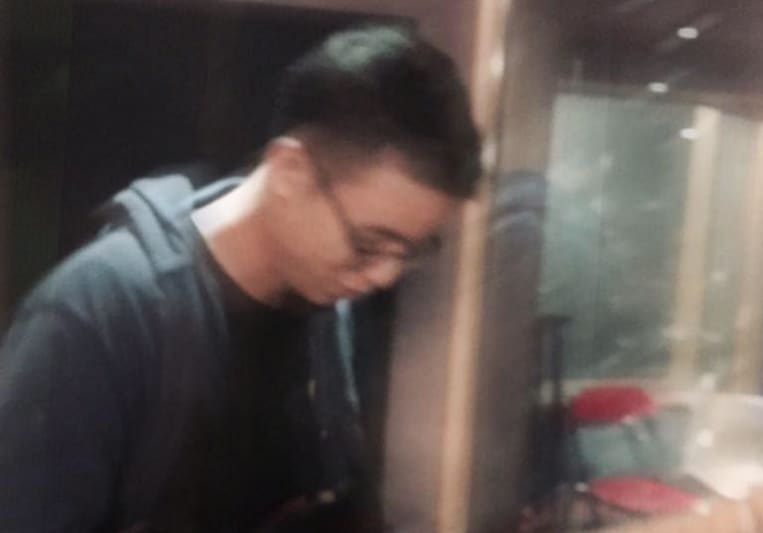
I produce, mix and master Pop, EDM, RnB, Hip-Hop, Rock. I produce custom music informed by my jazz education at Berklee College of Music. I mix using textures and processes inspired by analogue signal flows influenced by my time working with Bryce Goggin (Ramones, Phish, Pavement, Antony and the Johnsons).
I'm a member of the Audio Engineering Society (AES) and the American Society of Composers, Authors and Publishers (ASCAP).
I'm a Berklee graduate and majored in Contemporary Writing and Production, and Performance (Guitar). I also play drums, bass and keys. I previously worked at Trout Recording.
Send me a note through the contact button above.
Interview with Mikail Snax
Q: What's your 'promise' to your clients?
A: That I will always do everything in my power to make you sound your best. Fact.
Q: Tell us about a project you worked on you are especially proud of and why. What was your role?
A: I went up to Boston to record some library music with my Berklee friends. I wrote all the music in 3 days. We recorded 30 minutes of all in one take. I was amazed that we still played so well together. We had rehearsed the night before for only a couple of hours haha..
Q: What are you working on at the moment?
A: An alternative rock EP for a local New York artist, Pop and EDM tracks for various artists, electronic music for myself.
Q: Is there anyone on SoundBetter you know and would recommend to your clients?
A: Devon Aviles. He is an excellent music producer, audio engineer, and musician. He's originally from Arizona I met him in Bushwick, Brooklyn. He was looking for someone to fix his guitar amp. We became friends and started working together after that.
Q: Analog or digital and why?
A: Both. I worked in an analogue recording studio and heard all the vintage gear first hand. They just sound SO good. That was with Bryce Goggin at his studio Trout Recording in Park Slope, Brooklyn. My ears were just spoiled haha. So since my ears have heard the analogue goodness, I agree that digital emulations sound super good and close so why not use both? Different situations, different signal flows as the situation calls for it. That's art. That's engineering.
Q: What do you like most about your job?
A: The fact that I'm able to use my both emotions and logic to complete mine and other's art!
Q: What questions do customers most commonly ask you? What's your answer?
A: I'm an artist and I need help putting my art together. What do I need to do? I usually do a little consultation to see where they are in their process and then make a plan to help them put it all together.
Q: What's the biggest misconception about what you do?
A: That it's not as cerebral as other careers like finance, banking, medicine, STEM type jobs and so on. I don't keep track of how many hours I work per day but I personally put in more hours than those people. This is my full time job haha!
Q: What questions do you ask prospective clients?
A: What are your goals in music? What do you want your music to sound like? What is your brand?
Q: What advice do you have for a customer looking to hire a provider like you?
A: If you like my music, style and work ethic, let's talk!
Q: If you were on a desert island and could take just 5 pieces of gear, what would they be?
A: Laptop, audio interface, mic, couple of speakers.
Q: What was your career path? How long have you been doing this?
A: I started playing classical guitar at 13, moved to rock and shred and played jazz, ska and rnb in college. I studied electrical and electronics engineering and was half jock, half nerd haha. After that I was a full time guitar teacher. I saved up some money and went to Berklee.
Q: How would you describe your style?
A: Jazz influenced Pop, EDM, RnB, Hip-Hop, Rock music
Q: Which artist would you like to work with and why?
A: Ariana Grande
Q: Can you share one music production tip?
A: Put in the work! Don't fake it.
Q: What type of music do you usually work on?
A: Pop, EDM, RnB, Hip-Hop, Rock
Q: What's your strongest skill?
A: My intuition. It seems like I'm almost reading people's minds.
Q: What do you bring to a song?
A: My extensive artistic experience, tastes and training.
Q: What's your typical work process?
A: A vocalist works with me on a song idea they have. I use my music training and tastes to help them finish/arrange/produce the song. I then record parts and mix it.
Q: Tell us about your studio setup.
A: I run Logic Pro X and Pro Tools on a Macbook and a Razer Blade. I use a 251 style mic through Heritage Audio 1073 mic preamp into Antelope Audio and Focusrite interfaces. I use Yamaha and KRK speakers. I use Slate Digital, Soundtoys, Plugin Alliance and Izotope plugins among others.
Q: What other musicians or music production professionals inspire you?
A: Quincy Jones, Max Martin, J Dilla
Q: Describe the most common type of work you do for your clients.
A: Music Producing/Arranging, Mixing, Songwriting

- ProducerAverage price - $500 per song
- Mixing EngineerAverage price - $350 per song
- Electric GuitarAverage price - $150 per song
- Vocal TuningAverage price - $100 per track
2 revisions/track. Additional revisions USD50/track
- Dua Lipa
- Zara Larsson
- Selena Gomez
- Logic Pro X
- Pro Tools
- Antelope Audio
- Heritage Audio
- KRK
- Slate Digital
- Izotope
- Soundtoys
- Autotune/Melodyne



